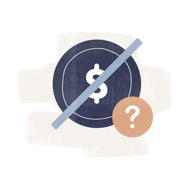Counterfeiting is not a new problem plaguing businesses across the U.S. In fact, the Secret Service was actually formed to address and control rampant counterfeiting at the close of the Civil War. Still, a century-and-a-half later, businesses are still struggling with this very issue.
There is approximately $147 million worth of counterfeit money in circulation around the globe, and 60% of that is in the United States, according to Secret Service data. And while no business, large or small, is safe from the risk of phony money, in today’s tight economy, small businesses are particularly vulnerable to this crime. Since business owners are responsible for not only replacing the counterfeit banknotes with real cash, they’re also responsible for eating the cost of the purchased merchandise or service. For the small business owner, this seemingly minor infraction can have a big impact.
So if you’re a small business owner, how can you protect yourself and mitigate the potential risk? There is no single answer to that question, but there are multiple actions you can take to protect your bottom line.
To help us identify the best ways to cut the risk, we spoke with Alexander Reichmann, the CEO of iTestCash, a supplier of money handling and retail security equipment. Reichmann’s knowledge of the counterfeit world goes beyond his current post. In fact, in addition to the years of research and knowledge he’s compiled on the matter, protecting business owners from fake cash is somewhat of a family affair. Reichmann’s grandfather, under their family-owned business, Dri Mark, patented their counterfeit money detection pen.
Here are some steps you can take to reduce your risk and protect your business from counterfeiting.
Counterfeit Detection Tools
It’s likely you’re aware of the counterfeit detection pens mentioned above, and they are one way to help protect your business from fake bills. However, advancements in technology have made it possible for counterfeiters to produce bills that can even trick the pens, says Reichmann. For that reason, counterfeit money detection machines can be an excellent addition to your business, especially if you’re specifically vulnerable due to the nature of your business (retail shops, restaurants, convenient stores, and any other bustling store that has a high percentage of cash transactions).
There are multiple tools out there to fit your budget. Some devices are equipped to detect security marks and magnetic ink, and analyze things like a bill’s color spectrum and optical density.
Security and Signage
As a consumer, you’ve likely seen a few signs that warn potential criminals of an establishment’s willingness to prosecute for theft or forgery. And though they may not mean much to you, in his research, Reichmann found that these seemingly innocuous signs play a vital role in your overall protection. In fact, he was quick to add that companies that utilize these types of signs are less likely to experience criminal activities like robberies.
Additionally, security cameras can play the same role. Not only that, but should you find that your business accepted a counterfeit bill, security footage can be harnessed during your report and hopefully circulated to local businesses to catch the culprit, which brings me to our next tip.
Raise Awareness
If you’re the victim of counterfeiting, spread the word to local establishments so that they can inform their employees, keep an eye out, and hopefully catch the criminal customer.
“If you’re a small business, and you’re friends with other small business owners, share tactics or how you’ve caught a counterfeiter, and basically if all businesses share awareness, you can more easily deter counterfeiters,” says Reichmann.
Education
Finally, and perhaps an ode to saving the best for last, is education. When I asked Reichmann what his best piece of advice was, particularly for small business owners who are on a tight budget and may not have the means to immediately purchase other forms of protection, he was quick to name education as the most important tool available.
The U.S. Currency Education Program offers excellent resources to help educate citizens on the security features included in each bill denomination. Employees handling cash should be properly trained to analyze and recognize counterfeit cash (Here is an excellent quick reference guide).
Beyond recognition training, your business should be equipped with a plan of action should a counterfeit bill be received. For example, what should an employee do after receiving the bill? The U.S. Department of Treasury has a series of recommended steps in place, and they are worth reviewing and posting within your organization.
Counterfeiting is an unpredictable crime that can have potentially devastating consequences, particularly for the small business owner. But by being proactive, and following the tips above, you can empower your employees to protect your company and, of course, your bottom line.
More answers to pressing questions
How to Shop for a Business Loan Without Hurting Your Credit Scores
How to Establish Business Credit
This article was originally written on November 10, 2016 and updated on November 18, 2016.


Have at it! We'd love to hear from you and encourage a lively discussion among our users. Please help us keep our site clean and protect yourself. Refrain from posting overtly promotional content, and avoid disclosing personal information such as bank account or phone numbers.
Reviews Disclosure: The responses below are not provided or commissioned by the credit card, financing and service companies that appear on this site. Responses have not been reviewed, approved or otherwise endorsed by the credit card, financing and service companies and it is not their responsibility to ensure all posts and/or questions are answered.